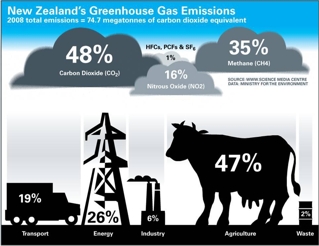
These emissions figures are well over ten years old. You’d think by now, for such a topical matter, the Royal Society might have found the 2017 data. Oh, and the MfE claiming agriculture produces nearly half our emissions is a scandal driven only by ideology. They should start pretending they are non-partisan: reduce methane’s atmospheric lifetime to a more realistic five or six years, remove its demented GWP of 28 times carbon dioxide’s and finally acknowledge that the country is a net carbon sink.1
refer The NZ Farmers Weekly – 22 July, 2019
The Government say farmers should pay for emissions from 2025—just six years away—so long as we devise a means of calculating those emissions.
To get their taxes altered, to reflect changes on the farm, farmers will have to provide evidence like invoices and receipts to prove their animal emissions have gone down.
But they’re having to prove they reduce what cannot be proved causes harm.
Because, which is extremely odd, the government has not produced evidence to show the emissions alter the weather, or that there’s a “climate emergency”. That can’t be fair.
The government will say (because they’ve told us before), “we listen to the IPCC.” But to that we say, “We did exactly that too, we examined what they said, and they have no evidence.”
The situation couldn’t be more pig-ignorant if you threw chicken bones on the ground and claimed to know the future. Continue Reading →
Views: 156



